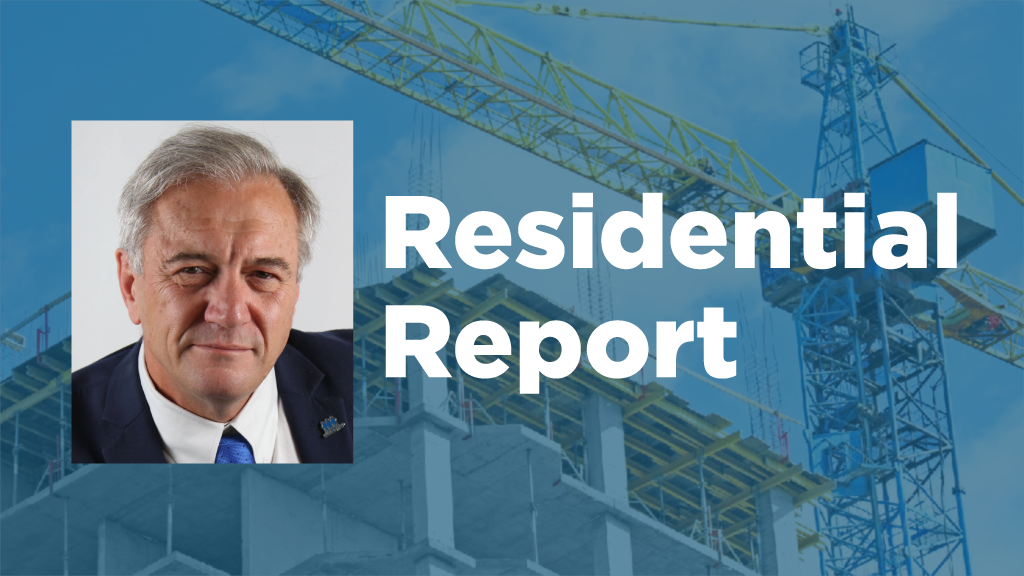If ever there was a time for government leaders — federal, provincial and municipal — to put their heads together with residential construction industry innovators, builders and developers, this is it.
The housing supply situation is at a critical point. Some economists already figure it is too late to bring us back from the brink. The actions we take now will determine how this growing crisis plays out.
The challenge is daunting. To succeed, all key players must be at the table. There are lingering systemic issues that need to be resolved by all levels of government and the industry if we are to succeed.
Latest reports indicate we are in serious trouble, and I suspect the housing situation is going to get worse before it gets better.
Some of the problems are due to inflation, high interest rates, the supply of materials and labour shortages. But other matters are within our control and can be tackled — if everybody is on the same page.
The Ontario government has set a target to get 1.5 million homes built by 2031. But the need is actually much higher. The CMHC now estimates 1.85 million homes need to be built to restore affordability.
Problem is, in the last 10 years, due to a variety of reasons — one being the excessive labyrinth of approvals that must be navigated before shovels go in the ground — less than 700,000 homes have been built. Ontario has not built more than 850,000 homes in any 10-year period in its history.
Clearly bold action is needed if we are to achieve the goal.
Report calls for action
A report released by the PLACE Centre, which stands for Propelling Locally Accelerated Clean Economies, calls on governments and the industry to come up with a feasible plan to reach the 1.5-million target.
Dr. Mike Moffatt, founding director of PLACE and an assistant professor at Ivey Business School, notes Ontario is only on pace to achieve 58 per cent of the target.
The report outlines six challenges that stand in the way of homebuilding in the province and echoes many of the ideas that RESCON has put forward. Specifically, it notes the regulatory environment needs to allow housing to be built with minimal delays while producing them safely and protecting the environment.
Sadly, we lag other Organization for Economic Cooperation and Development countries in the length of time it takes to secure approval for a general construction project. We are 34th on a list of 35. Worse, the World Bank has ranked Canada 64th out of 190 countries when it comes to construction permitting. These are disturbing rankings. If we don’t fix it, our housing situation will not improve.
Solutions proposed by RESCON
For some time now, RESCON has been calling on all three levels of government to adopt recommendations aimed at speeding up the dysfunctional planning approvals process.
We have also called for digitization of the development approvals system to reduce systemic delays. We need a unified data exchange program to provide for secure information sharing. Antiquated paper-based submissions and cumbersome review processes are causing significant bottlenecks.
We released a 15-point plan that outlines specific changes each level of government can make to boost the supply of housing. In putting the plan together, we consulted a wide array of stakeholders.
Provincially, we recommended Ontario mandate major municipalities to have an independent planning and development ombudsman to ensure applications are not delayed. We also suggested that municipalities be required to permit maximum reasonable residential development on sites, and that municipalities be required to end policies that prohibit light densification.
Municipally, we suggested planning and development divisions be required to move along housing applications and approvals within mandated timelines, and for increases in taxes, fees and levies, such as development charges, be reversed or reduced. Government charges in the GTA are the highest in North America and have increased between 800 and 1,000 per cent in 10 years.
Federally, we asked for an exemption or rebate on HST collected on construction of residential buildings and more tax incentive programs, as well as for the feds to reinvest more of the excessive tax revenue they collect from new home construction into housing supply and public infrastructure.
Taxes on the purchase of a new home in Ontario account for 31 per cent of the price. The federal government’s share of that is 39 per cent, yet they’ve invested only seven per cent in public infrastructure.
Barriers to building must be removed
Developers proceed with projects when they can make money. Present circumstances make that near impossible. Hence, starts are falling when they should be doubling. Coincidentally, the homelessness situation in our cities is growing.
It is imperative the various levels of government work with the industry to take significant and meaningful steps to remove barriers to building new housing. That is our only way out of this mess.
Co-operation between the industry and all levels of government is paramount if we are to move the needle. We are in an unprecedented predicament that requires extraordinary action.
Richard Lyall is president of the Residential Construction Council of Ontario. He has represented the building industry in Ontario since 1991. Contact him at media@rescon.com.






This is pretty thick coming from Rescon. It’s clear that leaving things to the market to solve, removing red tape, forcing municipalities to give land use approvals which builders than sit on holding servicing capacity hasn’t worked for the last 3 decades. The development & construction industry has fought to be considered a partner, an equal when developing policy, legislation. They are not a partner they are private entities driven by profit with no regard for the public interest, nor do they support their members in any meaningful way to support social, environmental and fiscal (wise use of public infrastructure dollars) responsibility. When developers, REITs, land speculators make so much money they can give back millions as ‘philanthropy’ but then say they can’t forgo profits it’s unacceptable. The HST cut will be another subsidy (gift) to the private sector that will fail to trickle down to those who need it most. Government collaboration has never been more important but we should think long & hard about who sits at the table, how initiatives truly & meaningfully bring about desperately needed housing for those who need it most.